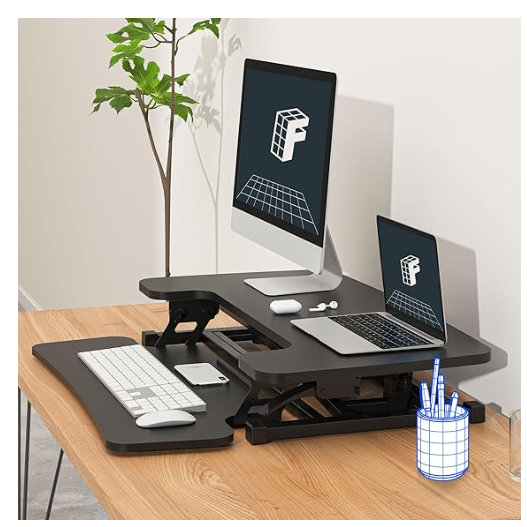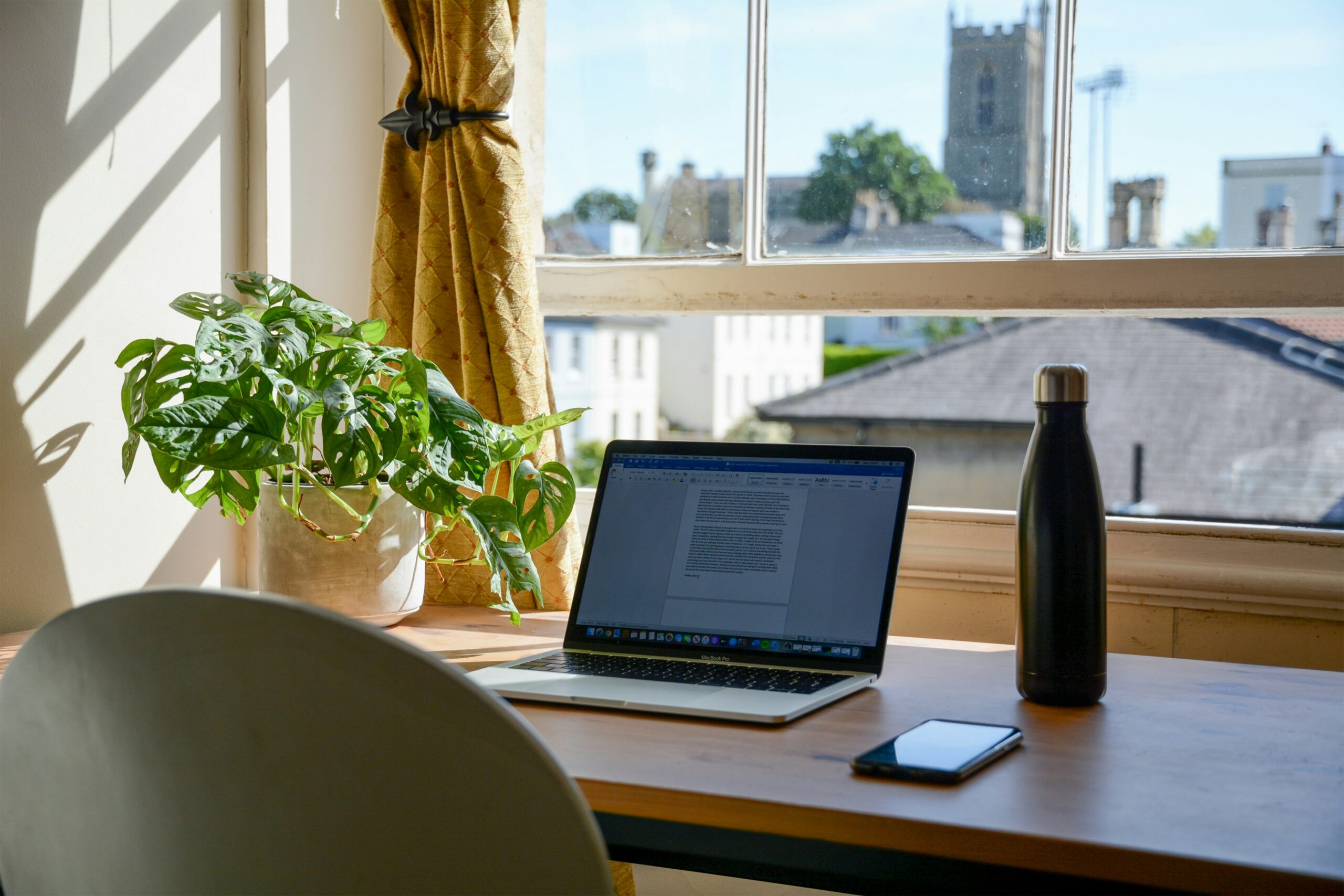When I was a PhD student, my workplace essentials usually consisted of a laptop, a notebook, and an energy drink. I fortunately was able to attend classes on campus and move around. Once I transitioned from academia to the private sector, I found that I was sitting at a desk most of the day. To help with the transition, I made note of some important tools that I use daily that make me more productive at work and overall happier while working from home.
# 1 – A Reliable Computer/Laptop
For most grad students, a lower-grad laptop can be used. However, if you manage larger projects and use software that is more memory-dependent, I would recommend something a little nicer. For instance, I run Screaming Frog which is a technical SEO tool. Having more memory to spare can make crawling websites much faster.
My current laptop is an HP ENVY x360 Laptop. Overall, I’ve had very little issues with my current setup for my daily responsibilities as a SEO professional.

#2 – Comfortable Chair For Back Support
Contrary to popular belief, jobs where you work from home can hurt your body.
Investing in ergonomic furniture is essential for creating a comfortable and supportive workspace, especially when spending long hours working from home.
By investing in ergonomic furniture, you’re investing in your long-term health and well-being. Proper support and posture alignment can reduce the risk of developing chronic pain conditions and improve overall comfort and productivity.
There are a lot of different options and frankly, it’s hard to know which type of chair to choose from, I found a few low-cost options from Amazon that might be a good fit:
Comfortable Chair Low-Cost Options
#3 – A Second Monitor
One thing I regret not having in graduate school is a second monitor. There’s such an added benefit of not having to jump between tabs to look at Excel vs looking at some other data source. Some tasks, such as graphic design, coding, or data analysis, benefit greatly from having additional screen space for visualizing complex information or code structures. A second monitor provides the flexibility to expand your workspace and view content in greater detail.
When collaborating with colleagues remotely, a second monitor can be invaluable for attending virtual meetings or video conferences while simultaneously referencing documents, notes, or other relevant materials. This makes collaboration more seamless and efficient.
My current monitor I used is an ASUS Monitor. It’s been a game-changer for my professional life and being able to stand while looking at a monitor is greatly appreciated.

#4 – A Standing Desk or Standing Desk Converter
Standing desks promote better posture by encouraging a more upright position while working. This can help alleviate strain on the spine, neck, and shoulders, reducing the risk of developing musculoskeletal problems associated with poor posture.
I use a standing desk converter desk and it’s makes for better posture overall since I often crouch over.
My current standing desk converter is a Flexispot.

5- Good Lighting
Adequate lighting reduces eye strain and fatigue, making it easier to read documents, view computer screens, and perform tasks accurately and efficiently.
I have also found that good lighting helps a ton when it comes to Zoom or Google Meet calls. Good lighting contributes to the overall aesthetics of your home office and can create a more professional atmosphere, especially for virtual meetings or video conferences where your surroundings are visible to others.
For daylight color temperature, I would recommend something like this lamp I found on Amazon. My general advice is to avoid something that is too warm and too cold and finding a happy medium.
Note: This page contains affiliate links to help support the site. By clicking on a link and purchasing a product, this site receives a commission.
Support After Your PhD
The above links are affiliate links and they are meant to help support this site. Another way to support After Your PhD is by leaving a tip below:

Ryan Collins PhD is an SEO Strategist at Go Fish Digital. Ryan completed his PhD in Media Arts and Sciences at Indiana University Bloomington in 2021. During his time at Indiana University, Ryan eventually pivoted into a career in SEO and Digital Marketing after having informational interviews with working professionals in SEO, working on side projects, and gaining industry experience.
